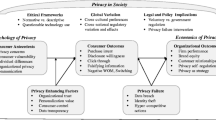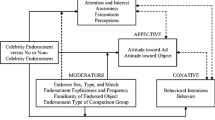Abstract
The Belgian Advertising Ethics Jury (JEP) does not include non-industry members, except for its independent President. This approach to advertising code-development and implementation represents the limit case in pure self-regulation; and it contrasts with the experience of most major countries (e.g., France, the United Kingdom, and the United States).
This situation reflects various Belgian institutional and ideological factors: conflicting views about advertising, self-regulation and outside participation in it; the division and concerns of the consumerist movement; the relative weakness of consumer-protection legislation; the ambiguity of government policy; the under-representation of advertising on government councils; and the shortage of independent personalities in a highly fragmented and polarized society.
Such obstacles are easy to identify but hard to overcome. Still, this unique approach of pure self-regulation in advertising is unlikely to survive intact in coming years. This article outlines various possible solutions for its transformation.
Zusammenfassung
Der belgische Werberat (JEP) setzt sich — mit Ausnahme des unabhängigen Präsidenten — nur aus Mitgliedern aus der Werbebranche zusammen. Dieser Weg zur Entwicklung und Durchsetzung von Werberichtlinien ist ein reiner Fall von Selbstkontrolle, steht jedoch den Erfahrungen anderer Länder (z. B. Frankreich, England, USA) entgegen.
Der belgische Weg ist Ausdruck institutioneller und ideologischer Besonderheiten dieses Landes: widersprüchliche Ansichten über Werbung und über Selbstkontrolle, insbesondere mit externer Beteiligung; eine zersplitterte Verbraucherbewegung mit unterschiedlichen Anliegen; eine nur schwache Verbraucherschutzgesetzgebung; politische Mehrdeutigkeiten; unzureichende Beteiligung der Werbebranche in staatlichen Kommissionen; zu wenige unabhängige Persönlichkeiten in einem Land mit gespaltener und polarisierter Bevölkerung.
Solche Schwierigkeiten sind leicht zu erkennen, aber schwer zu überwinden. Das System reiner Selbstkontrolle (ohne externe Beteiligung) dürfte jedenfalls die nächsten Jahre kaum unverändert überstehen. Veränderungen erfordern mehr finanzielle Mittel und personelle Möglichkeiten; sie sollten zu einer Selbstkontrolle mit Beteiligung auch solcher Mitglieder führen, die weder aus der Werbebranche noch aus Verbraucherorganisationen stammen, und Werberichtlinien anstreben, die gemeinsam von der Werbebranche und von den Verbraucherorganisationen entwickelt werden.
Similar content being viewed by others
References
Actes du Colloque de 1976 consacré à “La Publicité Face aux Consommateurs” (1977). Bulletin de l'Institut International de Concurrence Commerciale, April, numéro special, 172–193.
Association des Consommateurs (1981). Vers une nouvelle position juridique du consommateur: Les propositions de Test-Achats. Brussels: Association des Consommateurs.
Boddewyn, J. J. (1975). Corporate external affairs. Geneva and New York: Business International.
Boddewyn, J. J. (1983a). Outside participation in advertising self-regulation: The case of the Advertising Standards Authority (U. K.). Journal of Consumer Policy, 6, 53–70.
Boddewyn, J. J. (1983b). Outside participation in advertising self-regulation: The case of the French Bureau de Vérification de la Publicité. Journal of Consumer Policy, 7, forthcoming.
Boddewyn, J. J. (1983c). Outside participation in advertising self-regulation: Nature, rationale, and modes. New York: Baruch College. Mimeograph.
Bourgoignie, T., Delvax, G., Domont-Naert, F., & Panier, C. (1981). L'aide juridique au consommatuer. Brussels: Bruylant.
Bourgoignie, T., & Stuyck, J. (in press). La répresentation juridictionnelle des intérêts collectifs. In: XIèmes Journées d'Etudes Juridiques Jean Dabin. Louvain-la-Neuve: Université Catholique de Louvain, Faculté de Droit.
Conseil de la Consommation (1975). Avis No. 27 sur laproposition de loi Degroeve instituant un ombudsman des consommateurs. Brussels: Conseil de la Consommation, 26 November.
Conseil de la Consommation (1979). Avis No. 40; Avant-project de loi modifiant la loi du 14 juillet sur les pratiques du commerce. Brussels: Conseil de la Consommation, 28 September.
Council of Europe (1972). Resolution No. 72/8 on Consumer Protection Against Misleading Advertising. Strasbourg: Council of Europe, 13 February.
CRIOC (1981). La publicité télévisée en Belgique. Brussels: Centre de Recherche et d'Information des Organisations de Consommateurs (CRIOC).
CRISP (1978). Les consommateurs en Belgique: Protection — information — représentation. Brussels: Centre de Recherche et d'Information Socio-Politiques (CRISP).
EEC (1981). Council resolution of 19 May 1981 on a Second Programme of the European Economic Community for a Consumer Protection and Information Policy. Official Journal of the European Communities, June 3, pp. C133/1–12.
European Parliament (1980). Resolution embodying the opinion of the European Parliament on the communication from the Commission of the European Communities to the Council concerning an action programme of the European Communities with regard to consumers. Official Journal of the European Communities, 10 November, pp. C291/39–42.
Fontaine, M., & Bourgoignie, T. (1982). Consumer legislation in Belgium and Luxembourg. London and New York: Van Nostrand Reinhold.
Hirschman, A. O. (1970). Exit, voice, and loyalty. Cambridge, MA: Harvard University Press.
JEP (1979a, 1980, 1981, 1982). Rapport d'activité. Brussels: Jury d'Ethique Publicitaire.
JEP (1979b). Règlement d'ordre intérieur. Brussels: Jury d'Ethique Publicitaire.
LaBarbera, P. (1980a). Advertising self-regulation: An evaluation. MSU Business Topics, 28 (3), 55–63.
LaBarbera, P. (1980b). Analyzing and advancing the state of the art of advertising self-regulation. Journal of Advertising, 9 (4), 27–38.
Neelankavil, J. P., & Stridsberg, A. B. (1979). Advertising self-regulation: A global perspective. New York: Hastings House.
Starch INRA Hooper (1980). World advertising expenditures. Mamaroneck, NY: Starch INRA Hooper.
Stuyck, J. (1978). Six years of experience with some aspects of the Belgian Trade Practices Act of 1971 as an instrument of consumer protection. In: G. Skogh (Ed.), Law and economics, pp. 133–151. Lund, Sweden.
Stuyck, J. (1981). Zelfdiscipline inzake reclame: Kritische evaluatie van de Belgische praktijk (Advertising self-regulation: A critical evaluation of Belgian practice). Sociaal Economische Wetgeving, 91–108.
Stuyck, J. (1982). La Loi du 14 Juillet sur les Pratiques du Commerce: Applications et perspectives dans l'intérêt du consommateur. In: T. Bourgoignie & J. Gillardin (Eds.), Droit des consommateurs, pp. 171–244. Brussels: Facultés Universitaires Saint-Louis.
Additional information
J. J. Boddewyn is Professor of Marketing and International Business at the Baruch College of the City University of New York, 17 Lexington Avenue, New York, N. Y. 10010, USA.
This research was supported by a grant from the City University of New York's PSCCUNY Research Award Program. The assistance of the following people is gratefully acknowledged: Thierry Bourgoignie, Louvain University; J.-C. Dastot (Director of JEP); Paul de Bruyne, Louvain University (President of JEP); Charles Godart, Ministry of Economic Affairs; Jean Goebel, Ministry of Economic Affairs; Marc Goossens, CRIOC; Fernand Henet, Grey Belgium; Luc Joossens, CRIOC; Herman Koppen, CRIOC; André Lacroix, CACP (Advertising Agencies' Association); Martine Martel, Baruch College; F. Ruelle, Test-Achats (Association des Consommateurs); and Jules Stuyck, Leuven University.
Rights and permissions
About this article
Cite this article
Boddewyn, J.J. Belgian Advertising self-regulation and consumer organizations: Interaction and conflict in the context of the Jury d'Ethique Publicitaire (JEP). J Consum Policy 6, 303–323 (1983). https://doi.org/10.1007/BF00411398
Issue Date:
DOI: https://doi.org/10.1007/BF00411398




